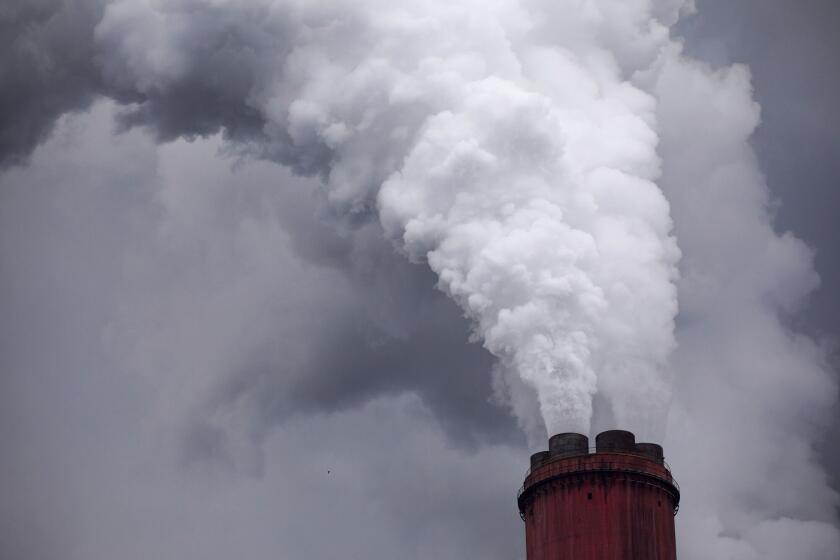Crisis Management: Preparing Corporations for the Unthinkable
- Share via
If any good is to come out of Johnson & Johnson’s second crisis surrounding the tampering with its Extra Strength Tylenol capsules, it may be the awakening of American business to the need for crisis management.
Corporations, like individuals, deceive themselves into thinking that a major catastrophe can’t or won’t happen to them. So crisis management is an area that is consistently ignored, or ranked as the last priority, even in businesses that are vulnerable to sudden bursts of misfortune.
Johnson & Johnson’s case may seem to be an extreme example of lightning striking twice. But in fact the Tylenol incident may not be so isolated. There have been enough corporate disasters in the last few years that we cannow construct a good working classification of them and prepare to deal with potential problems.
The first, of course, is when deaths occur due to product tampering. But we also have seen deaths due to product defects (Jalisco cheese) and a major industrial accident (Bhopal), severe financial losses due to counterfeiting of a corporation’s product (Cartier watches) and substantial financial losses due to some people seeing a satanic sign in a corporate logo (Procter & Gamble).
Given the range of potential disasters, every corporation would be well advised to scrutinize its entire operations for susceptibility of all types. This can be accomplished by the formation of a crisis-management unit.
What, though, would such a unit do to help contain potential catastrophes?
First, it would act as the official watchdog for a corporation, continually asking “what if” questions. “What if we get struck by a Bhopal?” “How probable is it?” “How regularly do we need to inspect our facilities for operator and plant breakdowns?” “How often do we need to conduct simulations of a major catastrophe in order to upgrade our disaster plans in order to safeguard our employees, customers and facilities?”
More important, the crisis-management unit would serve as the conscience of the corporation, raising the unpleasant questions that most people prefer not to consider. For example: “How vulnerable is our corporation when viewed through the eyes of a psychopath or a terrorist?”
In short, the function of a crisis-management unit is to continually prepare an organization for the potential occurance of every unsavory act that can be envisioned. An effective crisis-management unit is the professional and systematic paranoid arm of a corporation. In today’s world such thinking is so important that it cannot be left to chance.
The value of a plan is not that it will ever perfectly match reality. But going through the process of planning speeds the process of recovery. It allows an organization to emotionally work through the worst before it actually happens.
In this regard, Johnson & Johnson was in error for not having thought through beforehand the possibility of another poisoning incident occurring. Even though the company’s decision to take capsules off the market might well have been the same, Johnson & Johnson might have been prepared to cope better with the emotional stress of another attack. Even more important, it might have reached another decision regarding the value of new preventive-packaging technology to deter future attacks. The heat and stress of battle is the worst time to make decisions of strategic importance.
Why, for instance, did Johnson & Johnson not keep in place the 24-hour permanent crisis-management unit that so effectively handled the first Tylenol crisis? One can understand the all-too-human desire to put tragedy far behind oneself, but is this really a wise strategy in today’s world?
Johnson & Johnson, however, cannot be singled out for its failure to prepare for a second crisis concerning one of its products. According to a survey of Fortune 500 companies, only half had any kind of a plan to cope with a major disaster. Yet there is evidence that companies that do have plans recover about 2 1/2 times more quickly than those that do not.
Corporations obviously cannot prevent all catastrophes from occurring. No one expects complete prevention, but we do have the right to expect that corporations have done everything that is humanly possible to think systematically and continually about the unthinkable before it has occurred.
We should not wait for more catastrophes to occur before American corporations learn that it can’t have “business as usual” when it comes to managing crises.
More to Read
Inside the business of entertainment
The Wide Shot brings you news, analysis and insights on everything from streaming wars to production — and what it all means for the future.
You may occasionally receive promotional content from the Los Angeles Times.










